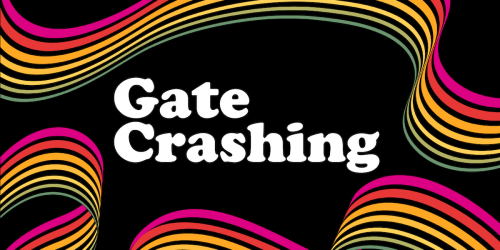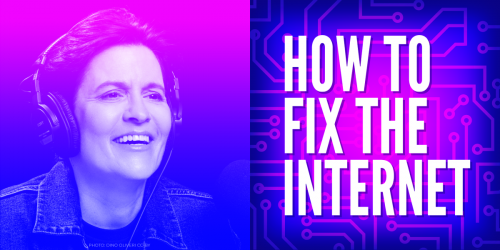In a disastrous ruling for online expression, innovation and competition, a federal appeals court has held that internet intermediaries are on the hook for expensive litigation and potential damages for violating a person’s “right of publicity,” (i.e., the right to control the commercial use of your persona). All because some people think of this right as a form of “intellectual property.”
State law claims are normally barred under Section 230, a law has enabled decades of innovation and online expression. But Section 230 doesn’t apply to intellectual property claims, so if publicity rights are intellectual property (“IP”), the theory goes, intermediaries can be sued for any user content that might evoke a person.
If that's the case, intermediaries will only be able to host as much speech as their lawyers, content moderators, and filters could screen beforehand, based on the most restrictive provisions in wildly varying state laws. In California, publicity rights protections apply to virtually anything that evokes a person, and last for 70 years after the death of that person. In Virginia, a publicity rights violation can result in criminal penalties. Alaska doesn’t recognize a right of publicity at all. Faced with a panoply of standards, email providers, social media platforms, and any site that supports user-generated content will be forced to tailor their sites and procedures to ensure compliance with the most restrictive state law, or risk liability and potentially devastating litigation costs.
Sadly, that is exactly what this decision has invited.
How did we get here? As is often the case, the facts are unfortunate. The plaintiff is a reporter who discovered that an image of herself caught on a surveillance camera was being shared on social media without her permission and, in some cases, used in ads. She’s suing Facebook, Reddit, Imgur and a porn site for violating her publicity rights. The district court dismissed the case on Section 230 grounds, following longstanding precedent from the Ninth Circuit holding that the IP carveout doesn’t include state publicity rights claims.
On appeal, the Third Circuit looked to several legal dictionaries and treatises to conclude that because some experts think publicity rights are a form intellectual property, they must be so. But the term at issue, “intellectual property,” varies widely depending on context. The term didn’t even come into common use until the latter half of the 20th Century, and, as the Ninth Circuit observed when confronted with the same issue, some now use the term loosely to refer to everything from trade secrets to unfair competition.
Given that ambiguity, the court should have considered Congress’ intent. As the dissent notes, the legislative history and numerous court decision interpreting that history make that intent very clear:
Congress—concerned about protecting and encouraging the freedom of expression in a new and important forum of speech—meant to protect and encourage such speech unfettered by the burden of intrusive governmental regulation in the form of civil litigation and liability.
Congress wanted to ensure that new sites and services could grow and thrive without fear that a failure to perfectly manage content that might run afoul of 50 different state laws might lead to crippling liability. Thanks to Section 230, we have an internet that enables new forms of collaboration and cultural production; allows ordinary people to stay informed, organize and build communities in new and unexpected ways; and, especially in a pandemic, helps millions of people learn, work, and serve others. And new platforms and services emerge every day because they can afford to direct their budgets toward innovation, rather than legal fees.
Interpreting the IP exception to include copyright and patents only is consistent with that clear intent, as well as the traditional meaning of the term. These federal monopolies are supposed to incentivize the creation and dissemination of knowledge, as opposed to protecting consumers from confusion or deception (e.g., trademark), protecting competition in a market (e.g. unfair competition), or protecting a person’s privacy (e.g. privacy torts). For all their many flaws, copyright and patent laws are relatively clear, relatively knowable, and embody a longstanding balance between rightsholders, future creators and inventors, and the public at large.
Publicity rights are none of these things. They vary widely and, in many states – including Pennsylvania – are categorized as privacy protections, which is appropriate given that they derive from privacy law, not intellectual property law. Whatever we call them, they look a lot more like other torts, such as privacy violations, that are included within Section 230’s traditional scope. And while the Supreme Court has analogized publicity rights to copyright and patent because, in some instances, their value can reflect the investment of time and effort, publicity rights do not fulfill any public interest in promoting creativity or invention. The Kardashians do not need any special incentive to create a valuable public identity, nor do regular people.
However much we might sympathize with some of Hepp’s claims, this ruling will lead to significant collateral damage for the whole internet ecosystem. This isn’t about Facebook. Facebook can doubtless afford any liability it might incur as a result of this or a later case. Smaller entities cannot afford that risk, or even the costs of defending a lawsuit, which can easily reach $500,000. And we are even more concerned about the users who rely on intermediaries to communicate with family, friends and the world, and who will be unable to share content that might include an image, likeness or phrase associated with a person should those intermediaries be saddled with defending against state publicity claims based on their users’ speech.
EFF, joined by other public interest advocates and small tech companies, raised this issue in an amicus brief. The majority dismissed our concerns by claiming, in a nutshell, that its ruling will not threaten expression because people can avoid liability by simply not violating Pennsylvanian law. That response is shockingly glib. As the dissent notes, the problem is not this specific claim under this specific state law; the problem is the flood of litigation that will follow, under many state laws, now that litigants know they can pursue intermediaries with deeper pockets than the individuals who have actually misappropriated their likeness. For some of Hepp’s claims, the individuals aren’t violating her rights at all because they’re not using her likeness commercially, but by suing the commercial platform carrying the images she can potentially get them removed. Intermediaries will have no choice but to take down content aggressively to avoid endless legal wrangling, even content that the user has a right to post.
The Hepp decision upends the legal landscape that has promoted a flourishing internet for decades, and delegates the scope of a crucial legal protection to the whims of the states. It requires online sites and services to adopt draconian measures to avoid liability in a fruitless effort to stave off a flood of meritless lawsuits. Many will simply refuse to host user-generated content at all – and we will all be the poorer for it.
We hope Facebook challenges this ruling. If they do, intermediaries of all stripes, and the users that rely on them, should raise their voices in support.











